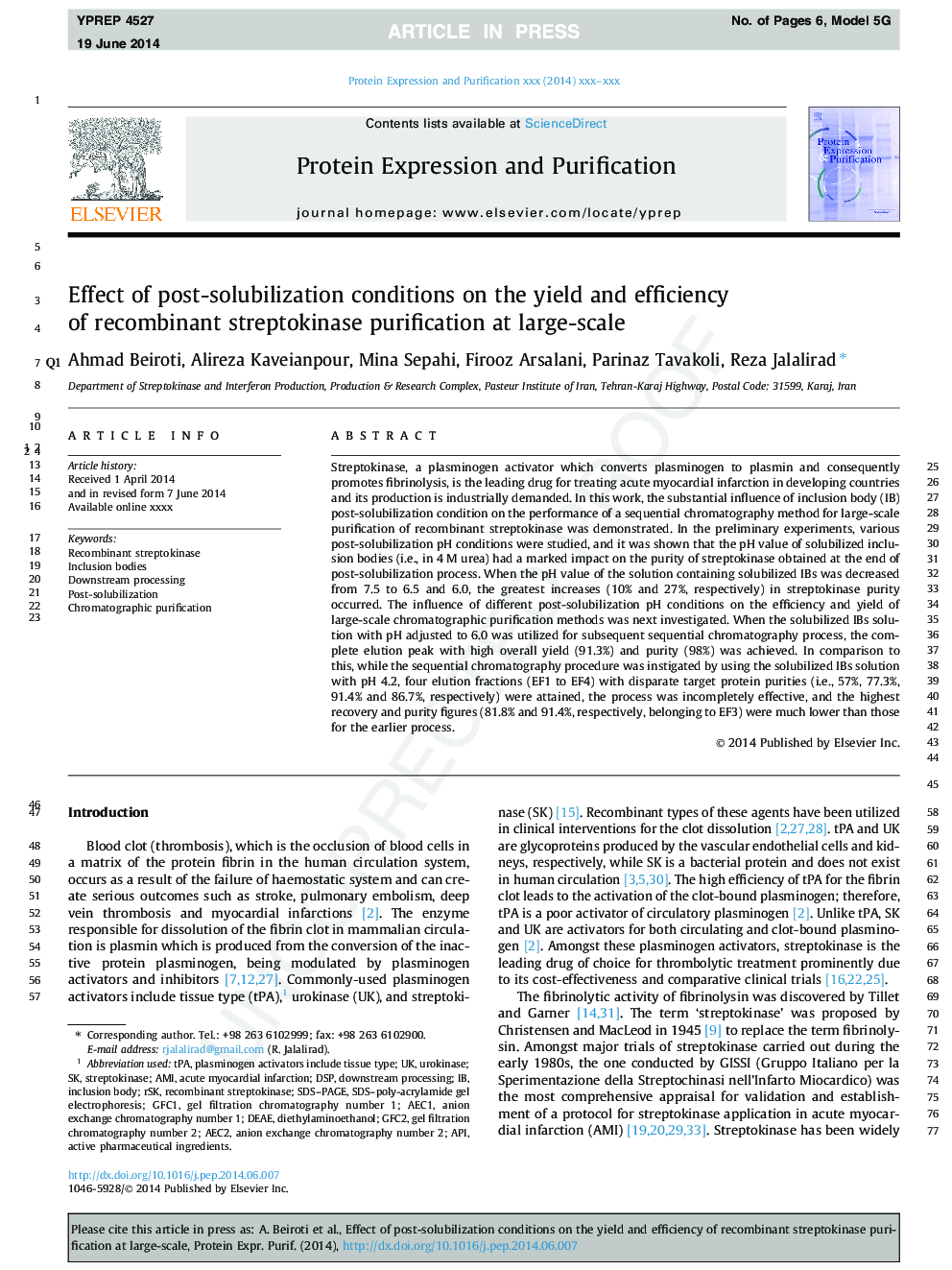| Article ID | Journal | Published Year | Pages | File Type |
|---|---|---|---|---|
| 8360521 | Protein Expression and Purification | 2014 | 6 Pages |
Abstract
Streptokinase, a plasminogen activator which converts plasminogen to plasmin and consequently promotes fibrinolysis, is the leading drug for treating acute myocardial infarction in developing countries and its production is industrially demanded. In this work, the substantial influence of inclusion body (IB) post-solubilization condition on the performance of a sequential chromatography method for large-scale purification of recombinant streptokinase was demonstrated. In the preliminary experiments, various post-solubilization pH conditions were studied, and it was shown that the pH value of solubilized inclusion bodies (i.e., in 4Â M urea) had a marked impact on the purity of streptokinase obtained at the end of post-solubilization process. When the pH value of the solution containing solubilized IBs was decreased from 7.5 to 6.5 and 6.0, the greatest increases (10% and 27%, respectively) in streptokinase purity occurred. The influence of different post-solubilization pH conditions on the efficiency and yield of large-scale chromatographic purification methods was next investigated. When the solubilized IBs solution with pH adjusted to 6.0 was utilized for subsequent sequential chromatography process, the complete elution peak with high overall yield (91.3%) and purity (98%) was achieved. In comparison to this, while the sequential chromatography procedure was instigated by using the solubilized IBs solution with pH 4.2, four elution fractions (EF1 to EF4) with disparate target protein purities (i.e., 57%, 77.3%, 91.4% and 86.7%, respectively) were attained, the process was incompletely effective, and the highest recovery and purity figures (81.8% and 91.4%, respectively, belonging to EF3) were much lower than those for the earlier process.
Related Topics
Life Sciences
Biochemistry, Genetics and Molecular Biology
Biochemistry
Authors
Ahmad Beiroti, Alireza Kavianpour, Mina Sepahi, Firooz Arsalani, Parinaz Tavakoli Zaniani, Reza Jalalirad,
